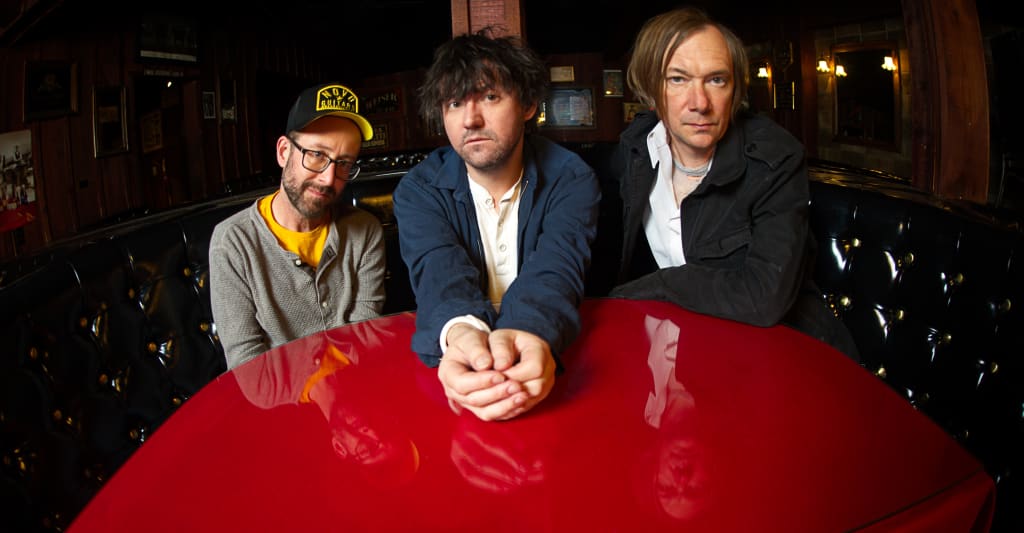There’s something very earnest and unburdened about the way Oberst recalls his first few years of high school, when he started to hang around his older brother Justin’s upstart indie label, Saddle Creek Records. He’d just started high school and didn’t have a driver’s license, but he’d already released his own tape and was starting projects with friends like Todd Fink of The Faintand Cursive’s Tim Kasher, who was the co-founder of Oberst’s fairly successful punk band, Commander Venus.
In the background of all this was Bright Eyes, an eclectic and unvarnished solo project where Oberst freely experimented with sound collage, pop-adjacent songwriting, and pensive lyricism, often letting his voice strain beneath the weight of its own emotion. The stakes were low, and he wasn’t at the point where most people were betting on him. Instead, the people around him still treated music as a means of expression — an act of messy experimentation coming out of the basements of Omaha in the early ’90s.
The year after Commander Venus broke up, a 15-year-old Oberst released his first Bright Eyes album, A Collection of Songs Written Between 1995-1997, an unrefined, Mogis-produced bundle of 20 songs spanning genres, moods, and feels. Against the crackly, bedroom production, there’s the intense strumming and promising songwriting of “The Awful Sweetness of Escaping Sweat,” the chaos of chimes and a D.I.Y. drumstick countdown on “I Watched You Taking Off,” and the long-forgotten movie he recorded on a dictaphone for “Driving Fast Through a Big City at Night.”
A Collection of Songs caught the attention of the Elephant 6 collective in Athens, Georgia, where bands like The Olivia Tremor Control, of Montreal, and Neutral Milk Hotel were creating anti-corporate pop using sound collaging and tape manipulations. In 1999, Bright Eyes released Letting Off the Happiness, which was one of the last times Oberst would play with a straight-up D.I.Y. punk aesthetic outside of his Desaparecidos side project. If you listen carefully, songs like “The City Has Sex” shares a similar aesthetic and attitude with “Rainbow Overpass” — punchy, existential, and honest.
Most Bright Eyes fans typically enter their most beloved era with a holy trinity of records that remain cult favorites to this day. In 2000, the band debuted their third studio record, Fevers and Mirrors, the first of three albums that would set a certain musical expectation among fans. Bright Eyes and Conor Oberst started to become synonyms for melancholic Americana indie folk, a connection that only continued to solidify with 2002’s Lifted or The Story Is in the Soil, Keep Your Ear to the Ground — and culminated in 2005’s I’m Wide Awake, It’s Morning and its breakout hit, “First Day of My Life,” a love song that’s been covered by Mac Miller, interpolated by Young Thug, and co-opted by wedding planners around the country.
“Every quote-unquote hit, or song, or anything that’s ever been attractive to the mainstream amount of people has been just a complete fluke…,” Oberst trails off, just shy of name-checking the track.
His face is hard to read in that moment, but from other parts of our conversation, he clearly has mixed feelings about a song that may have “made us so much fucking money, and, realistically, fame,” but has also arguably overshadowed the rest of his career.

